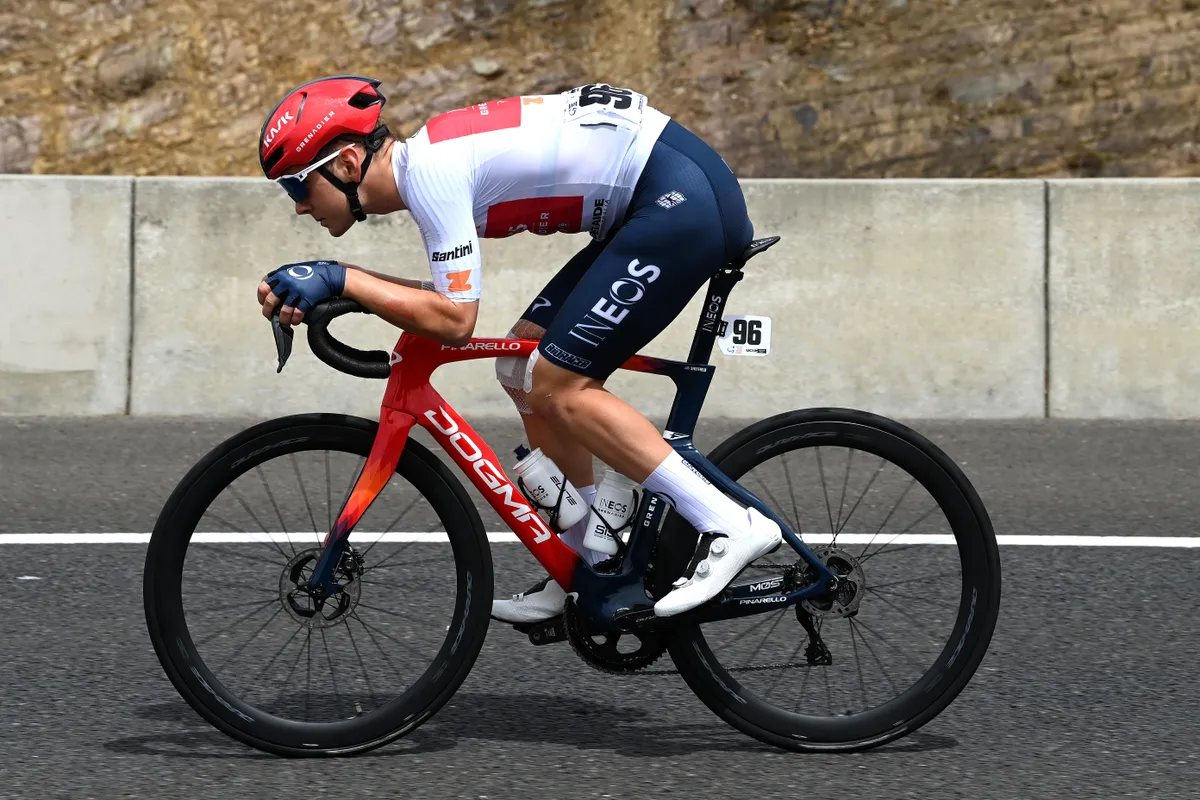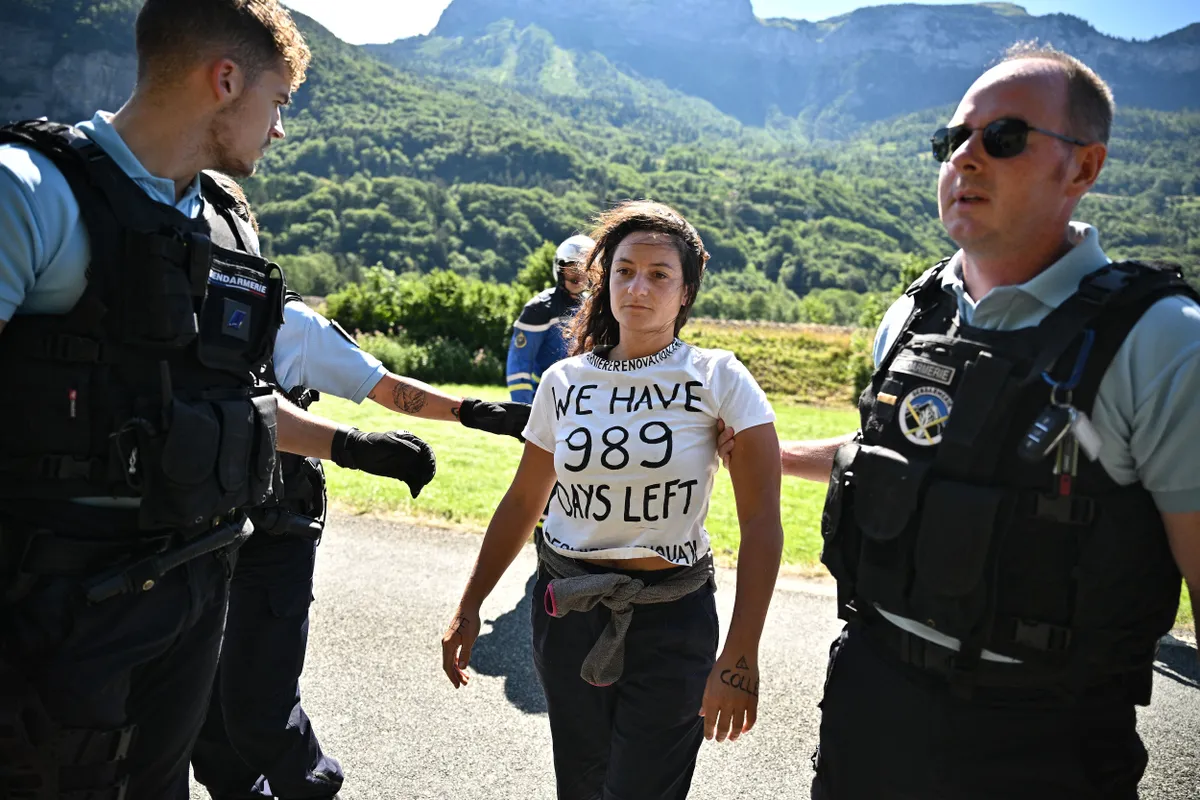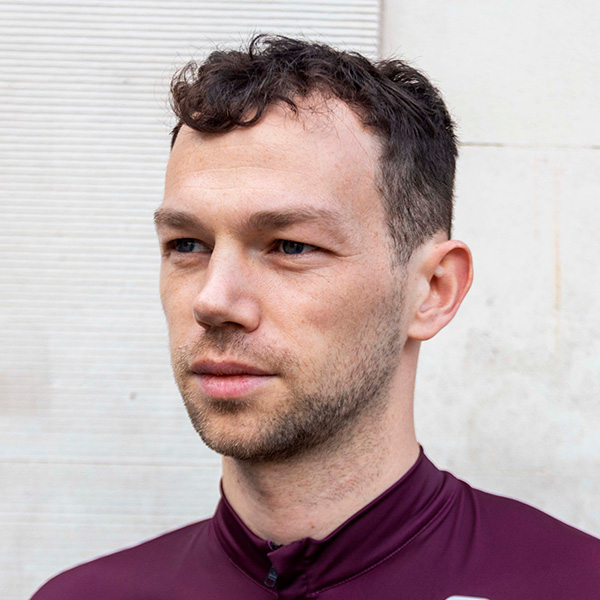Members of Extinction Rebellion Australia were arrested last week in Adelaide after they glued their hands to a pile of bikes. They were protesting the title sponsorship by Santos, an oil and gas company, of the Tour Down Under.
This was one of 11 protests Extinction Rebellion planned to hold during the race, which also included a group of elderly protestors mooning crowds and holding signs with messages such as ‘Bikes, yes; Santos, no’ before being arrested for exposure.
You may find the idea of glued hands and mooning funny, but Extinction Rebellion’s actions should be a wake-up call to the rest of professional cycling.
This isn’t the first example of an environmental protest at a bike race. The group Dernière Rénovation halted stage 10 of the 2022 Tour de France by sitting in the road, saying non-violent disruption was the only remaining way to avoid the consequences of climate change.
Missing the point

Despite these protests and cycling’s image as a means to move towards a greener way of life, there is little trace of environmental concern at the top of the sport.
Ineos-Grenadiers' headline sponsor is owned by James Ratcliffe, who has said one way out of the current energy crisis is fracking. Ineos is one of the world's largest petrochemical companies.
This process has been widely derided by climate scientists because it leads to methane leaking into the atmosphere. Hardly the green revolution we need.
Events in Australia bring the silence from within professional cycling into sharp focus. The 2020 Tour Down Under passed through areas devastated by the wildfires that started in Australia at the end of 2019. A study later claimed climate change boosted the chances of hot and dry conditions that are likely to cause bushfires by at least 30 per cent.
While, at the time, the professional cyclist Romain Bardet said he hoped the race would draw attention to the issues, this seemed to miss the point. After all, the sponsor was Santos, which was later sued for bogus clean energy claims.
There needs to be a greater understanding in this sport of the effect a global race calendar and sponsorship from petrochemical companies has. If flying around the world and taking hundreds of people with you, from media teams to soigneurs, wasn’t enough of an environmental issue, the fact cycling helps sports wash these companies is absurd.
The Tour Down Under also bucks the trend in Australia with its ties to Santos. In October 2022, The Science Schools Project, which organises a science roadshow in Australia, dropped Santos as a sponsor, stating the fossil fuel sponsorship was inappropriate.
Tennis Australia also ended its sponsorship deal with the oil and gas company this time last year after a campaign targeting Santos for sports washing.
Falling on deaf ears

If it’s inappropriate for a science organisation or Tennis Australia to receive funding from fossil fuels, why does the same not apply to cycling’s premiere early-season stage race?
We should be celebrating cycling’s potential to help reduce emissions and provide an alternative to motor vehicle reliance, not letting fossil fuel companies associate themselves with a green mode of transport through sponsorship deals.
But, if you follow professional cycling, you’ll know there’s a history of a lack of engagement with wider issues. When it came to the protests of Dernière Rénovation last year, there was a mixed response.
Former pro rider David Millar acknowledged the importance of what they were doing in his race commentary while expressing sympathy for the race and the riders.
Others were less understanding. The Olympian and 2012 Tour de France winner Bradley Wiggins said “whatever they're protesting about, it's probably over nothing. We don't need that disrupting this bicycle race."
Time is running out
There seems to be an overwhelming attitude in professional cycling of, “we’re here to ride, not partake in politics”. This attitude is embarrassingly common across different sports and we need to wave goodbye to it. But unfortunately, professional cycling has a lot of work to do.
Extinction Rebellion’s actions at the Tour Down Under should be considered more broadly and, whatever your opinion, we should listen to what they have to say.
We have to move towards a more considered and nuanced approach to sport, sponsorship and climate change.
I love professional cycling dearly and follow its riders and races with a passion I’ve never had for any other sport. But I care more about our future on this planet and the positive role cycling can play beyond whether those riders cross a finish line.
